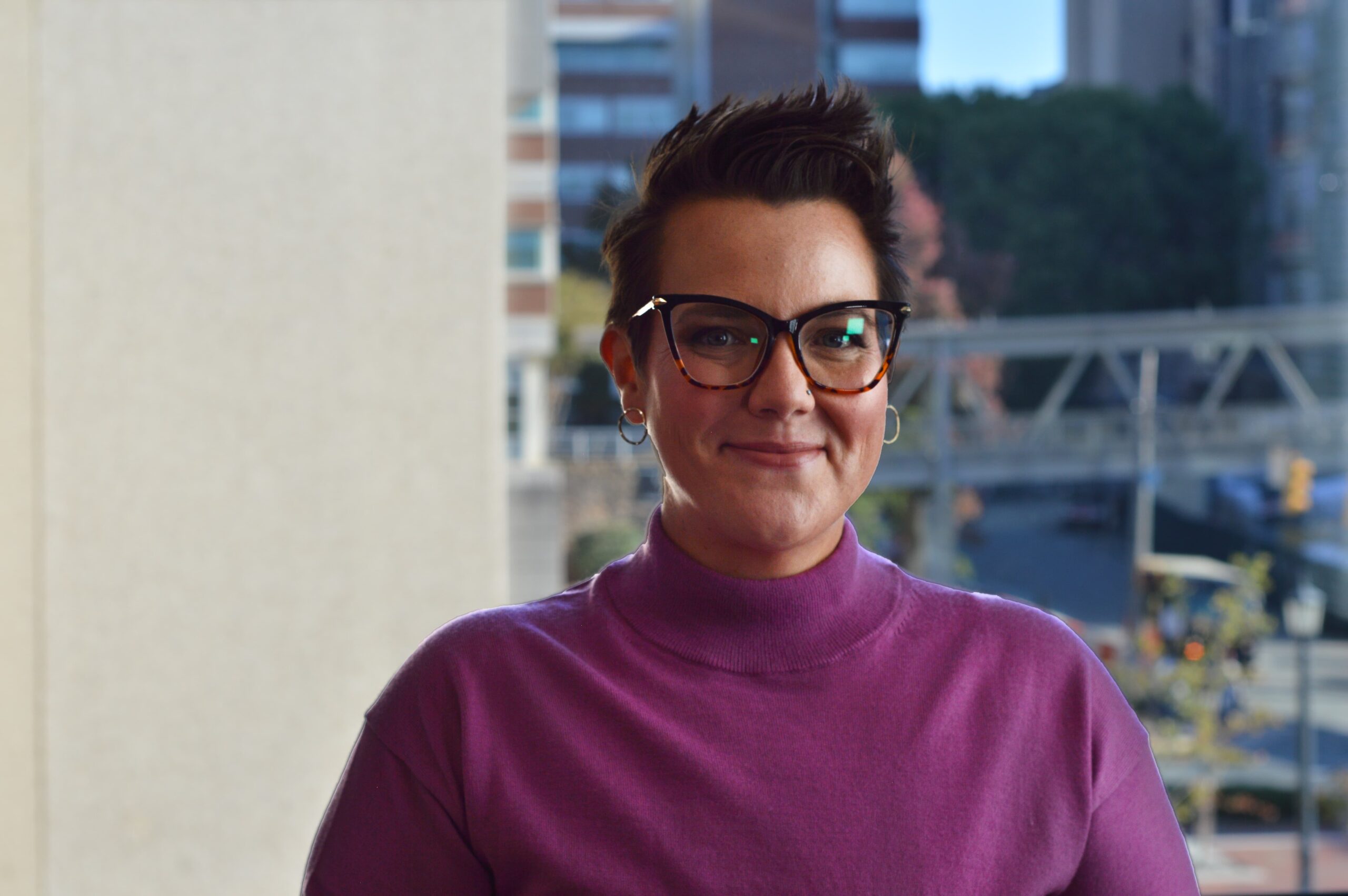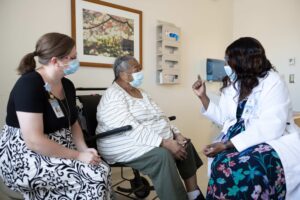Resources for Patients
Find information about participating in research on this page, and connect with our Clinical Trial Patient Navigator who can help answer your questions.

Participation is your decision
Being a part of research is a personal decision.
You need to understand what’s involved and talk with your doctor about different types of research that may be available for you.
We are here to help and answer any questions you may have. Research is always completely voluntary and it’s always your choice.
At any time during research participation, you can change your mind.
Frequently asked questions about research
Why is research important?Research can change the way cancer is treated. Clinical trials can help find new, possibly life-saving treatments.
Most of the life-saving treatments available today were found through clinical trials.
During your treatment for cancer, you may have the option to participate in clinical trials and change the way cancer is treated. The new treatment may one day help other people who are diagnosed with cancer.
Clinical trials help doctors find better ways to treat and prevent cancer. Whether the treatment is a vitamin, a cancer drug, a surgical procedure, a new way to detect disease, or a medical device, at some point it has to be tested on people through a clinical trial.
If you or a loved one has cancer, you might consider joining a clinical trial in order to try a new drug or treatment, or help doctors develop better treatments for the future.
In the United States, the Food and Drug Administration (FDA) requires new drugs and other treatments to be tested in clinical trials before it approves the drug or treatment for everyone to use. Carefully conducted clinical trials are the fastest and safest way to find whether new drugs or treatments are both safe and effective.
Participants in clinical trials can play a more active role in their own health care, gain access to new research treatments before they are widely available, and help others by contributing to medical research.
Sometimes patients worry that participating in a trial means that they may not receive cancer treatment. It’s important to know that in many cancer clinical trials, the new or experimental treatment is compared to the current, standard treatment. Placebos are rarely used in cancer clinical trials.
Choosing to participate in a clinical trial is a personal decision. All clinical trials have guidelines about who can participate. Researchers use protocols with defined criteria to identify appropriate participants and maintain safety standards.
Support for patients
Get your questions answered and find to resources to make decisions about your health care.
Connect with our Clinical Trial Patient Navigator (CPTN) to learn more about clinical trials and participating in research. A CTPN helps connect patients with resources, which could help make their participation in a trial more possible.
Patient Navigators help guide patients through the health care system, and are a helpful resource.

Ashley Rankin Collins, Clinical Trial Patient Navigator
Email: create@med.unc.edu
Phone: (919) 843-4880
How to talk with your doctor about research
Whether you are just beginning your cancer journey or you’re ready for a new treatment, clinical trials may be possible for you. It’s important you speak up and ask your doctor about any and all of your options.
Some questions you might ask your cancer doctor:
 What are my treatment options?
What are my treatment options?- Will these treatment options impact my ability to join a clinical trial?
- Are there any clinical trials for me to think about?
- If I want to participate in a clinical trial, will I need to go somewhere else?
- Will you still be my doctor if I choose a clinical trial?
- Do you know of any clinical trials that I can think about?
- Is there someone I can talk to about my clinical trial options?
Clinical trials at UNC Lineberger Comprehensive Cancer Center
UNC Lineberger Comprehensive Cancer Center offers several hundred clinical trials for adults and children who have cancer or blood disorders.

